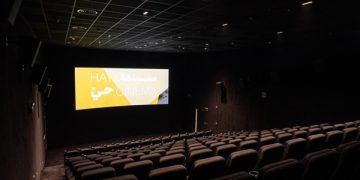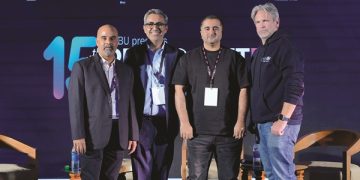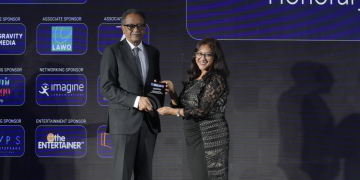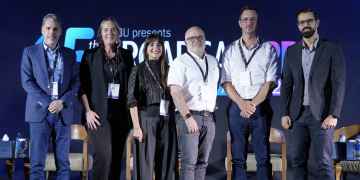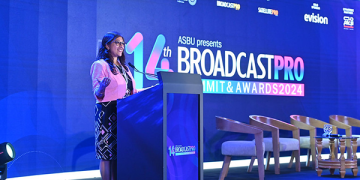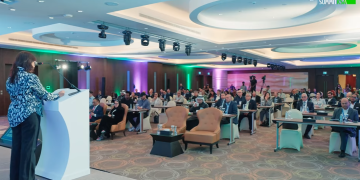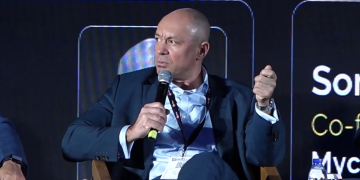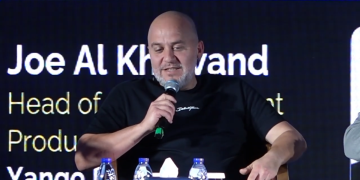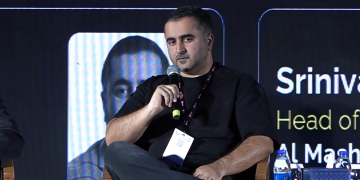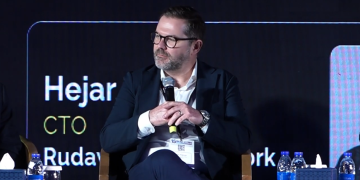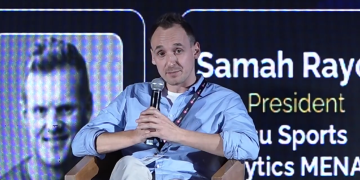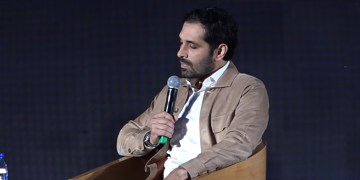The winning projects reflect a diverse range of voices and genres, unified by a format that is redefining modern storytelling.
Image Nation Abu Dhabi, in partnership with Hollywood filmmaker Timur Bekmambetov and his production company Bazelevs, has announced the winners of the UAE’s first-ever Screenlife Accelerator Programme. The initiative, launched in June 2024, focused on training local and resident filmmakers in the screenlife storytelling format, where entire narratives unfold through digital interfaces like smartphones and computer screens.
Over a rigorous 12-week period, participants were mentored in the craft of screenlife filmmaking, culminating in the selection of 13 finalists chosen to develop pilots of their concepts. From these, eight projects were awarded further support to advance their scripts and prepare for the next phase of production.
Among the winners is Disappearance by Emirati director Abdulbaset Qayed, a supernatural thriller centred on two vloggers investigating a mysterious vanishing in the Omani mountains. Turkish filmmakers Gorkem Sifael and Ozgur Akyuz were recognised for Stalker, a psychological drama about a woman whose AI search tool, created to locate her missing mother, is hijacked by a sinister stalker.
Other standout projects include Hidden Melody by Emirati filmmaker Afra Al Marar, a suspenseful tale about a composer haunted by a song and a singer’s untimely death; and Maybe You Should Talk to Someone by French expat Julie Sanchez, which delves into the psychological complexities of an online therapist and her clients.
Dana Ittani, an American-Lebanese filmmaker, presented Just My Type, a gripping cybercrime drama inspired by real-life romance scams. Dubai-based Ekta Saran and British writer Danielle Arden’s Mother Scammer offers a darkly satirical look at high society and digital deception. Aisha Al Aqel was honoured for Closure, a sci-fi horror exploring grief and AI resurrection, while Yemeni director Tammam Assi’s The Link examines the dangers of online manipulation and viral identity fraud.
Ben Ross, CEO of Image Nation Abu Dhabi, said: “As Abu Dhabi and the UAE continue to establish its position as a leader in the creative industries, our partnership on screenlife reflects our commitment to innovation in filmmaking, empowering emerging storytellers with the latest tools, and showcasing the UAE’s unique identity through globally resonant stories. We were overwhelmed with the level of talent we saw during the programme – and look forward to bringing these projects to life.”
Timur Bekmambetov, pioneer of the screenlife format, added: “Screenlife isn’t just a new storytelling language, it’s a real tool for social impact. It democratises access to cinema through technology and changes the idea that cinema belongs only to those with big connections and big budgets. Instead, screenlife makes cinema a platform for new voices and untold stories coming from emerging regions and underserved communities. All our best screenlife films were made by first-time filmmakers. And we hope this accelerator’s finalist will soon be next.”
Bekmambetov is the pioneer of screenlife films in which the action is set from the point of view of smartphones and computer screens as characters utilise their devices that drive the narrative forward. His debut screenlife production – a teen horror pic Unfriended (2015) – was picked up by Universal and went on to gross more than $65m against a budget of $1m. His next screenlife production, Searching (2018) starring John Cho, became a sensation at the Sundance Film Festival, grossing over $7m.





















